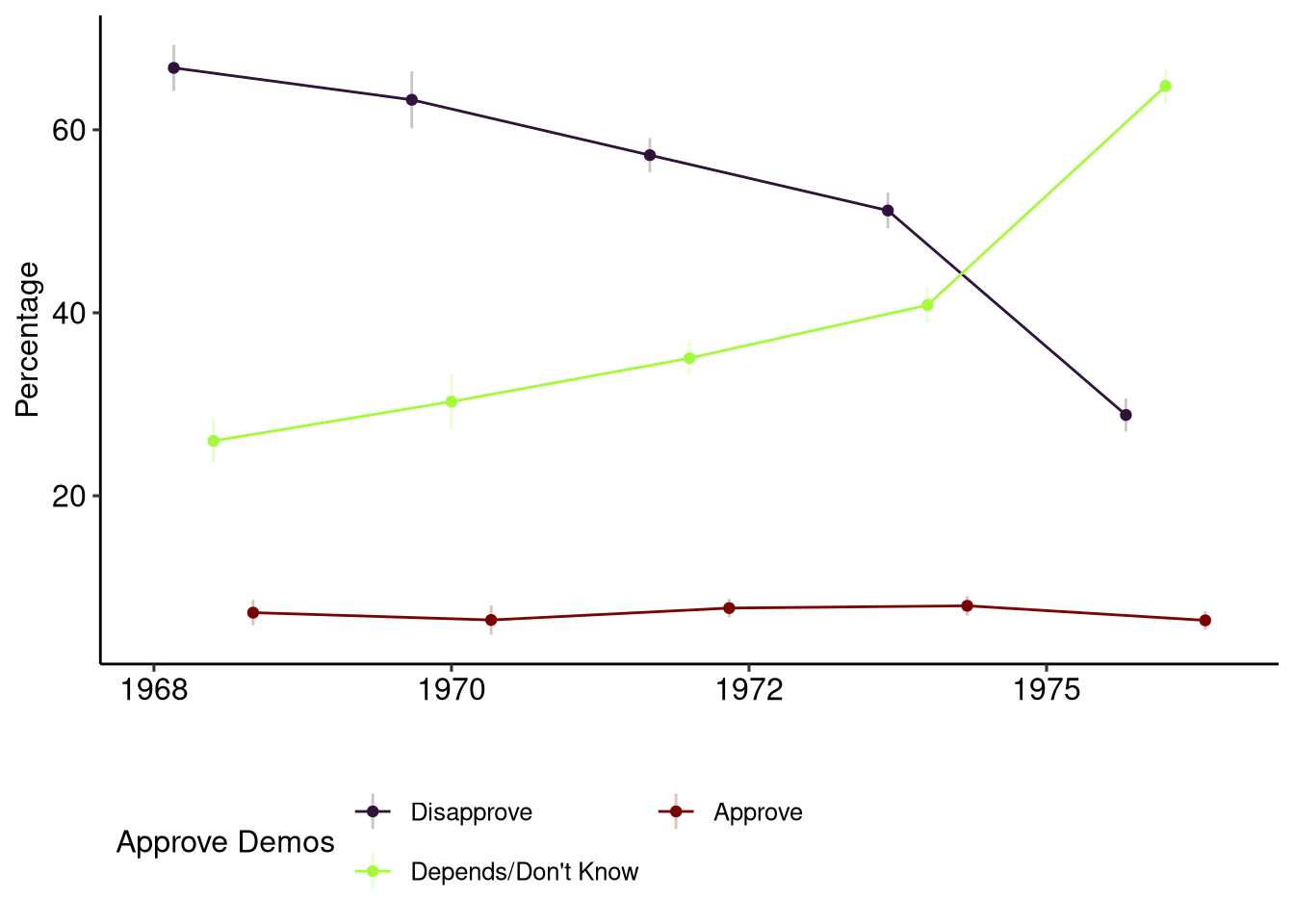
Approve Demonstrations
Question Language
Suppose all other methods have failed and the person decides to try to stop the government from going about its usual activities with sit- ins, mass meetings, demonstrations, and things like that? Would you approve of that, disapprove, or would it depend on the circumstances?
- Disapprove
- Pro-con, depends, don’t know
- Approve
All
By Education
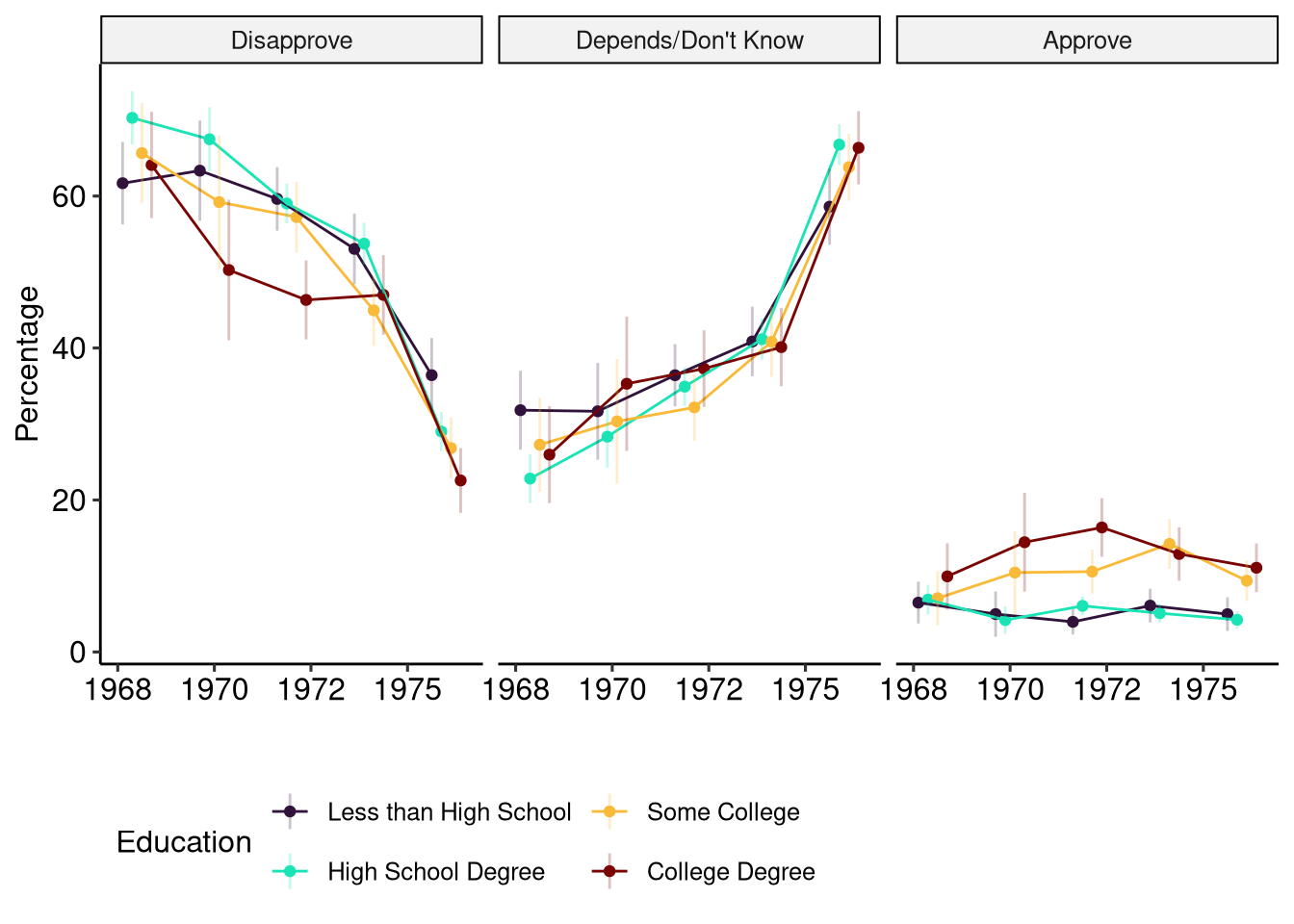
By Gender
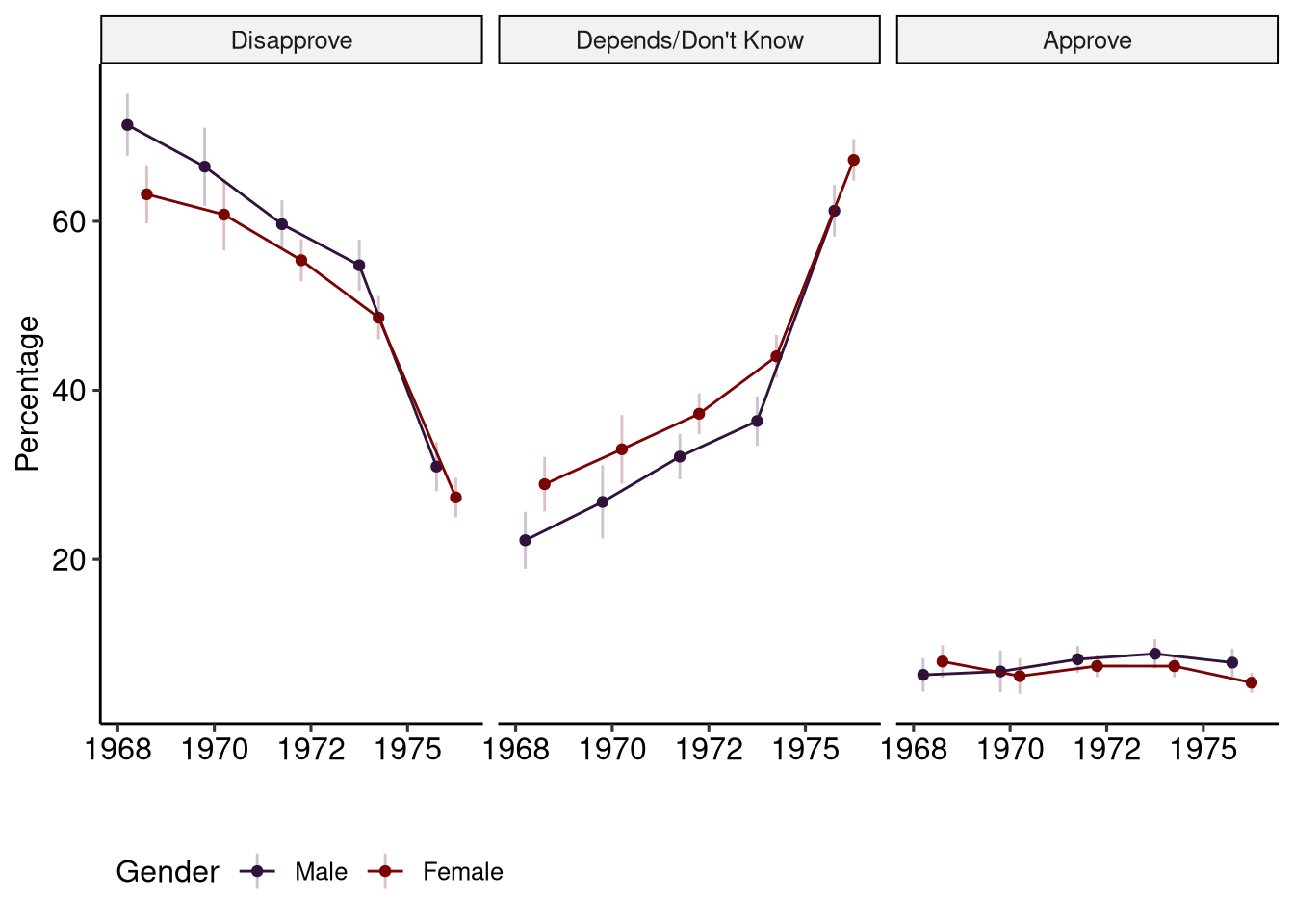
By Income
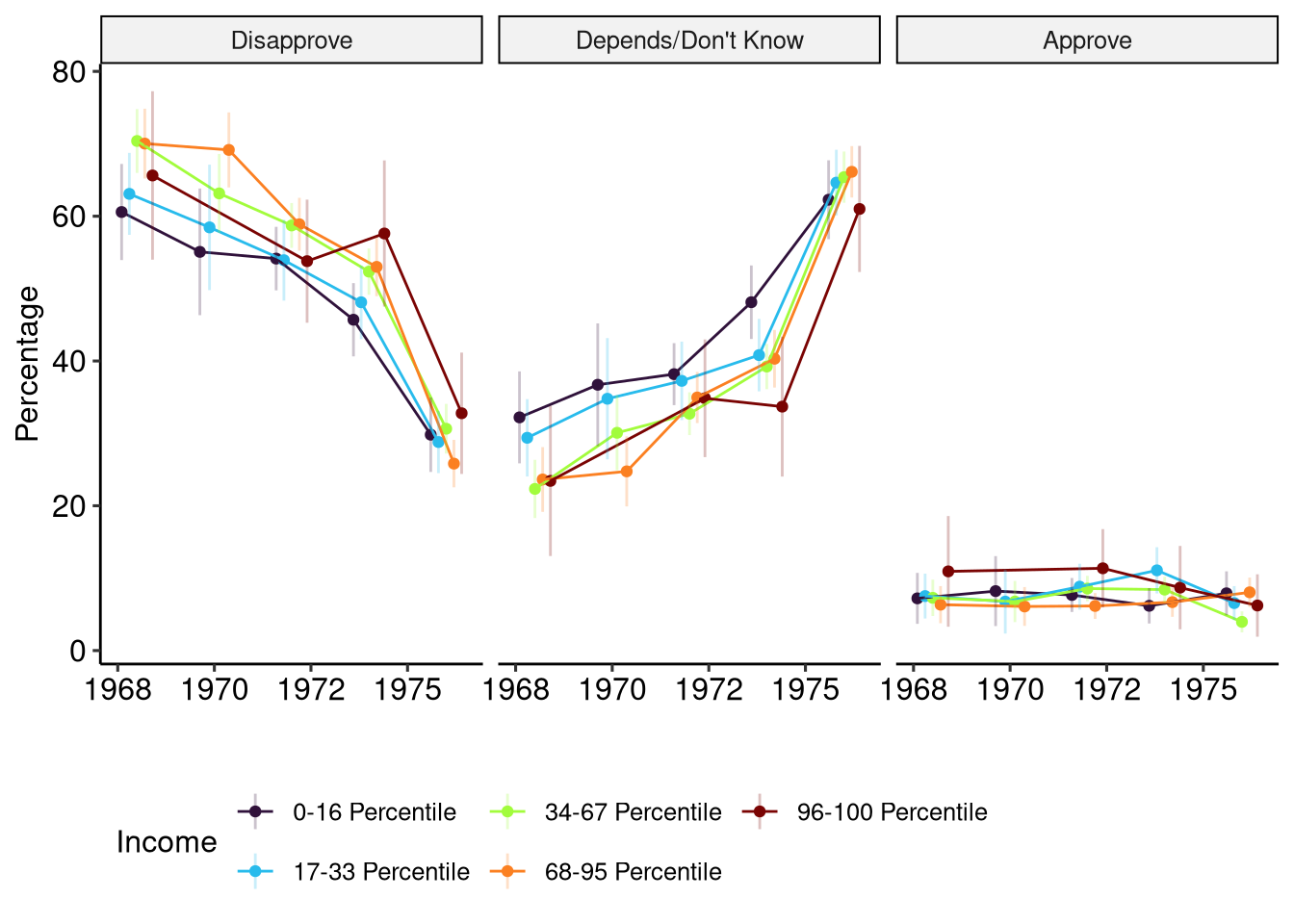
By Race
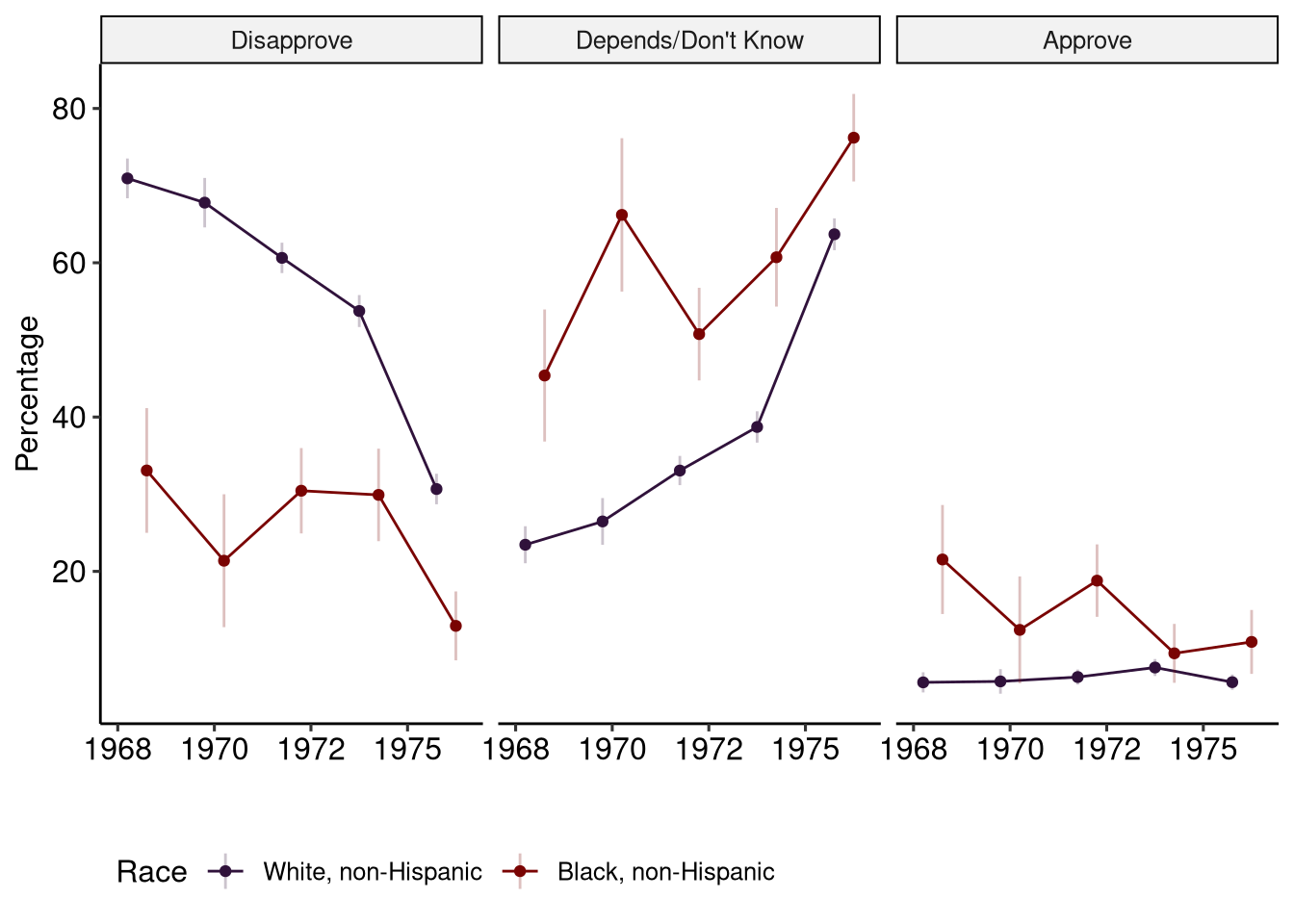
Note: Options for race have varied significantly overtime, and the size of the ANES means that there are very small samples Asian and American Indian. Because of this they are grouped together into “Other, non-Hispanic” which also includes those who identify as multiple racial categories. I also drop any years where there are fewer than 50 individuals in the sample. This is far from ideal.
By Subjective Class
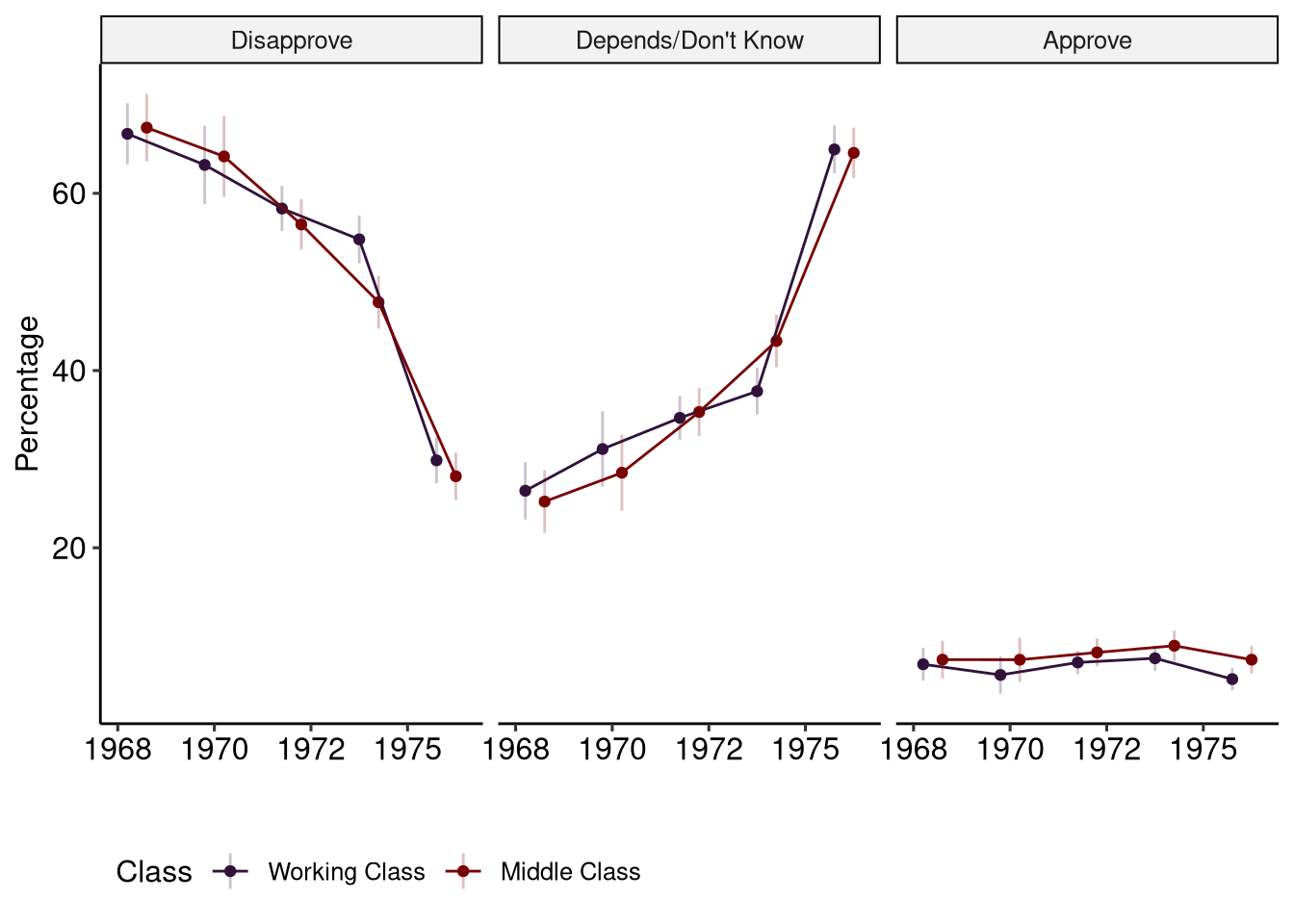
Subjective class is what an individual identifies as when asked. The question used by ANES is:
There’s been some talk these days about different social classes. Most people say they belong either to the middle class or the working class. Do you ever think of yourself as belonging in one of these classes? Which one?
In some years respondents were asked where they identified within “working” or “middle” but not consistently so that has been dropped from this analysis.
By Party
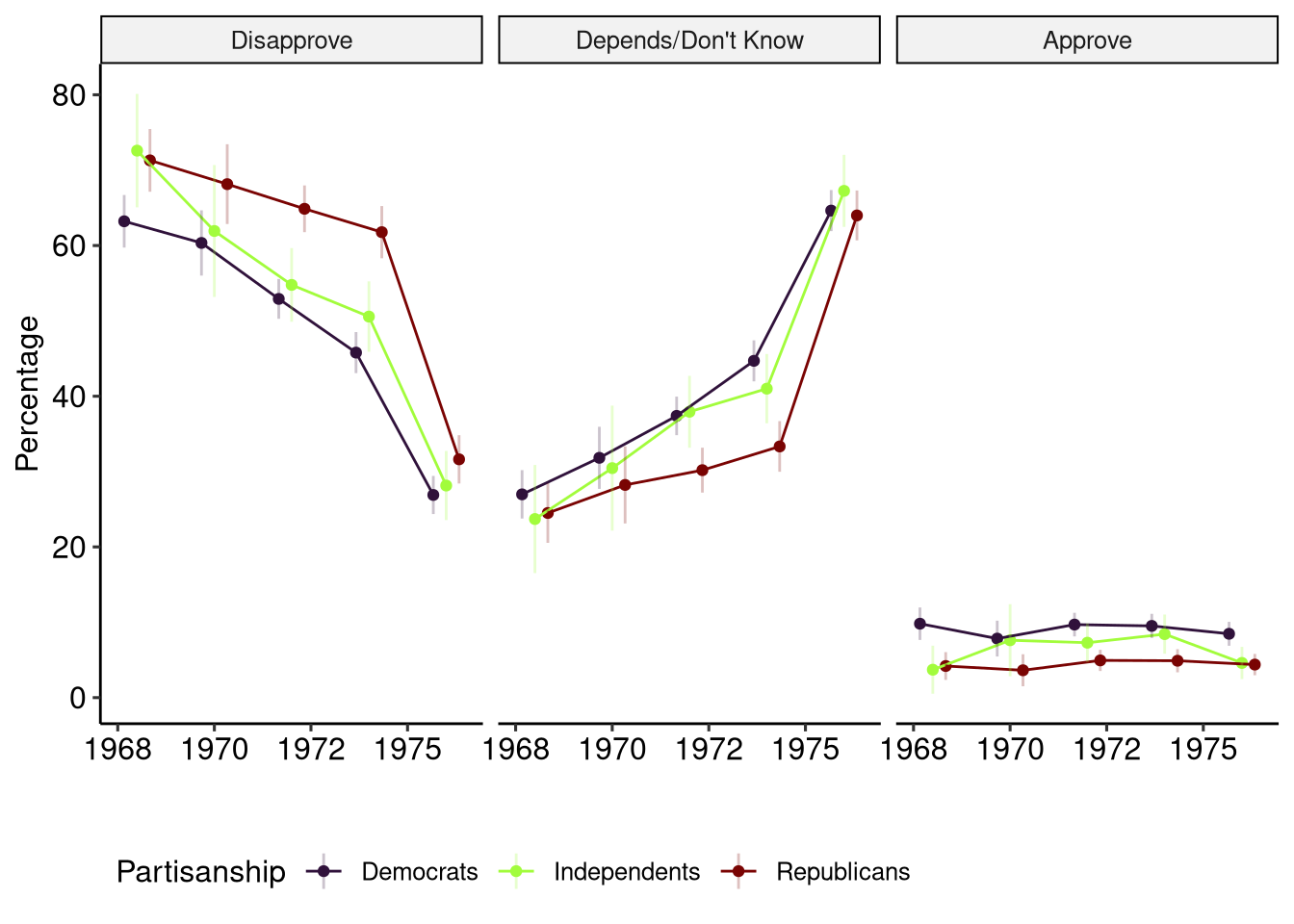
Note: This includes “leaners” in the party they lean towards. Individuals were first asked whether they think of themselves as a Republican, Democrat or Independent. Those who identify as Independent are then asked if they lean towards one party or the other.
By Union Status
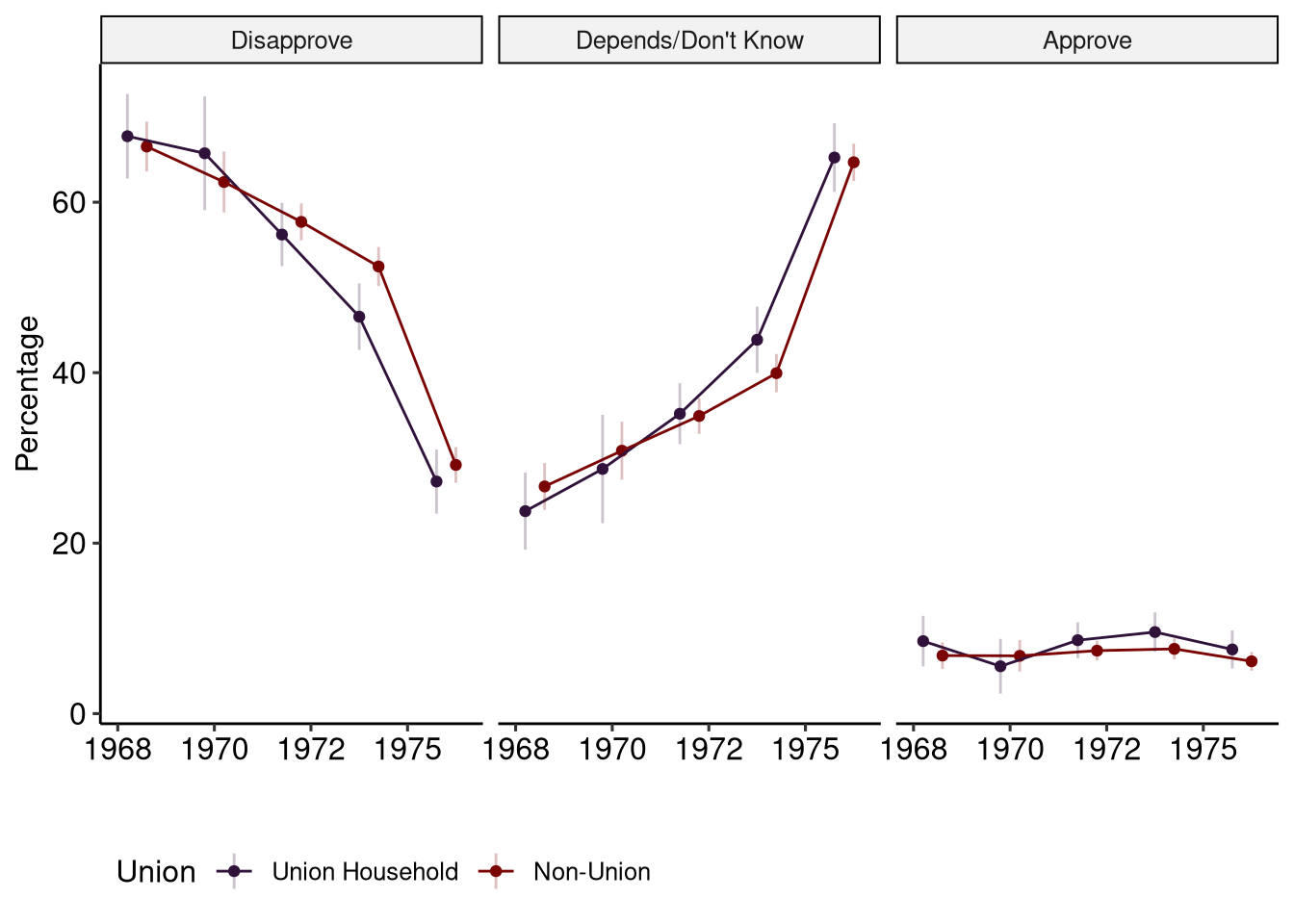
Data
The summary statistics are available here. The Group N column is the number of respondents in a given group in a given year while the N column is the number of respondents who selected the answer in the Approve Demos column.
Note: These are all weighted statistics (using the VCF0010z weights) and are provided if you’d like to make you own visualizations. If you are interested in doing your own analysis, use the raw data available from the American National Election Studies survey.